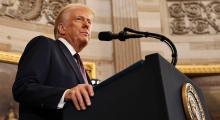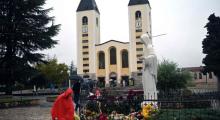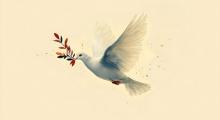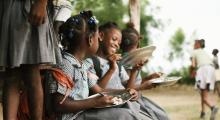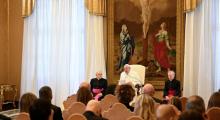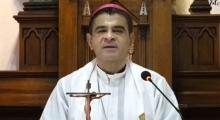Issued by the Catholic Center for Studies and Media - Jordan. Editor-in-chief Fr. Rif'at Bader - موقع أبونا abouna.org
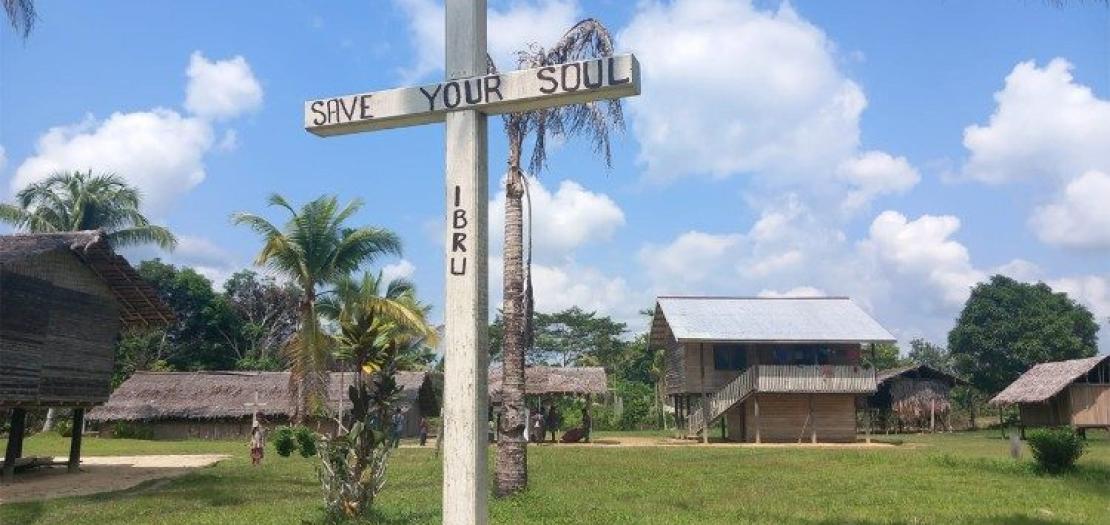
Pope Francis’ visit to Port Moresby will be a big event. The diocese is divided into 22 parishes: 19 are in the city, and the others are in rural areas. There is a total of about 500,000 inhabitants.
The Missionaries of the Sacred Heart of Jesus, of whom I am a member, arrived in Papua New Guinea in 1882. They started the first parish in Rabaul in that year. Then, three years later, in 1885, the missionaries arrived on Yule Island. Many of them were from France, but there were also German, American, Italian, Spanish and Swiss missionaries. They did a great job, and since then, the local Church has grown.
We’ll have a big number of people coming here for the Pope’s visit from other parts of the country.
For instance, about 100 people will arrive from the Metropolitan Archdiocese of Mount Hagen in the Highlands. They will walk to Kerema, and from there take the road to Port Moresby. It will take about five days.
Currently only two dioceses are accessible to Port Moresby by road: Kerema and Bereina. For the rest, you either fly or travel by boat, by sea.
Whatever the case may be, the faithful will make every effort to meet the Pope. That’s why we are trying to organize accommodating the people coming in. We will use our schools and parishes to host them.
As Bishops of Papua New Guinea and the Solomon Islands, we will have an audience with the Holy Father on Saturday, 7 September, together with priests, deacons, consecrated men and women, seminarians and catechists.
That same day, the Pope will meet with the marginalized children, street children, those children who are suffering, those who are affected by disabilities, deafness and blindness.
In particular, the Pope will visit the children assisted by “Street Ministry”, the pastoral office I started in 2010, and by the “Callan Services”, which were founded by the Congregation of Christian Brothers. In this way, we are all working together to look after all these children in those situations they are in.
In our diocese, there is ecumenical and interreligious dialogue, including with Muslims, Hindus and Baha’is.
When we enter into this dialogue, there is that sense of knowing one another, respecting one another, accepting one another. This brings us peacefully together and allows us to work together, and it’s good.
Recently, we had a meeting with all of them, and the theme of our meeting was: "Do to your brothers what you want them to do to you."
We reflected on the Golden Rule, that is, “doing good to others, and they will be able to do the same to you”. It was very enriching, uniting us, and helping us to be able to continue to build a relationship that is based on doing good, and this good for us is Christ. That was very good.
There are difficulties: in May this year, there was a big landslide, and many properties were destroyed. In Port Moresby, there is violence, looting and killings. Our main challenge is to try to live peacefully.
That’s why we are looking forward to this, as we are seeing that this will be a visit that brings light, that brings hope, that brings blessing, and so, that brings renewal. Renewal in the sense that it encourages us to be able to start anew to be able to do something positive and good for our nation.
We were looking for a chance and the Holy Father’s coming is a chance. As the Vicar of Christ, moreover, the Pope is for us a big hope, a way of bringing us strength and peace, because we have gone through all these difficulties, and it’s not easy. But this is our hope now.
We are hoping that the presence of the Holy Father will bring something that is good, something that is positive, something that is peaceful, something that unites all of us, and also that renews us to start working together again, building Papua New Guinea in a new spirit: a spirit of peace, a spirit of forgiveness and a spirit of love.


